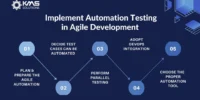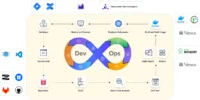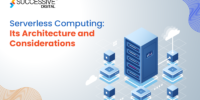Welcome to the realm where science fiction meets reality—Artificial Intelligence (AI) in action! Beyond the buzz and futuristic notions, AI is making a profound impact on real-world scenarios, transforming industries and enhancing human experiences. If you’re ready to harness the power of AI in practical settings, join us on this journey for quick tips on implementing AI effectively in the real world.
The AI Landscape: Mapping Your Terrain ️
Embark on your AI journey by mapping your terrain. Understand the landscape of AI technologies, including machine learning, natural language processing, and computer vision. Identify the unique needs and challenges of your industry or domain. A clear map sets the stage for targeted AI implementation, ensuring that you navigate the AI landscape with purpose.
Identify Business Challenges: Targeting AI Solutions
Target your AI solutions by identifying specific business challenges. Whether it’s automating repetitive tasks, enhancing customer experiences, or optimizing decision-making processes, AI excels when applied to concrete challenges. Begin your AI implementation with a focus on solving real-world problems that bring tangible benefits to your organization or users.
Start Small, Scale Fast: Planting the AI Seed
Plant the AI seed by starting small and scaling fast. Begin with pilot projects or proof-of-concept implementations to test the feasibility and impact of AI solutions. Once you validate success, scale up your AI initiatives strategically. This iterative approach allows you to refine your AI implementations based on real-world feedback and experience.
Invest in Quality Data: Fueling the AI Engine ️
Fuel the AI engine with quality data. AI algorithms thrive on diverse and well-curated datasets. Invest in collecting, cleaning, and organizing relevant data that aligns with your AI objectives. Quality data is the lifeblood of AI, ensuring accurate training and robust performance in real-world scenarios.
Understand Ethical Considerations: Navigating AI Waters
Navigate the waters of AI implementation by understanding ethical considerations. AI applications raise important ethical questions related to privacy, bias, and transparency. Establish clear guidelines and policies to address ethical concerns in your AI projects. Striking a balance between innovation and ethical considerations is crucial for responsible AI implementation.
Collaborate with Stakeholders: Building AI Alliances
Build AI alliances by collaborating with stakeholders. Involve key team members, decision-makers, and end-users in the AI implementation process. Their insights and perspectives are invaluable for refining AI solutions and ensuring seamless integration into existing workflows. Collaboration fosters a sense of ownership and commitment to the success of your AI initiatives.
Continuous Learning Culture: Nurturing the AI Mindset
Nurture the AI mindset within your organization by fostering a continuous learning culture. AI technologies evolve rapidly, and staying abreast of the latest developments is essential. Encourage your team to participate in AI training programs, attend industry conferences, and engage in knowledge-sharing forums. A learning culture ensures that your AI implementations remain at the forefront of innovation.
Monitor and Iterate: Fine-tuning AI Precision
Fine-tune AI precision by adopting a process of continuous monitoring and iteration. Regularly assess the performance of your AI solutions in real-world scenarios. Use feedback and data insights to make iterative improvements. Monitoring and iteration are the gears that keep your AI engine running smoothly and adapting to changing conditions.
Stay Adaptable: Riding the Waves of AI Evolution
Ride the waves of AI evolution by staying adaptable. The AI landscape is dynamic, with new technologies and approaches emerging regularly. Embrace a mindset of adaptability, be open to exploring innovative AI solutions, and be prepared to pivot when necessary. Staying adaptable ensures that your AI implementations remain relevant and impactful in the ever-changing tech seas.
Conclusion: Empowering Real-world Impact with AI
As you embark on the journey of implementing AI in real-world scenarios, remember that the true power of AI lies in its ability to empower real-world impact. By mapping your terrain, targeting business challenges, starting small and scaling fast, investing in quality data, understanding ethical considerations, collaborating with stakeholders, nurturing a continuous learning culture, monitoring and iterating, and staying adaptable, you’re not just implementing AI; you’re unlocking the potential for positive transformation in the real world. Let the AI adventure begin!








